Düsseldorf
Building Airport City
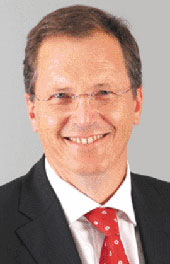 Düsseldorf
brings much to the table as the third largest airport in Germany, although
as compared to FRA & MUC the gateway is rarely in the headlines. Düsseldorf
brings much to the table as the third largest airport in Germany, although
as compared to FRA & MUC the gateway is rarely in the headlines.
Christoph Blume, (left) the airport CEO
notes the gateway offers great transport connections and the location
is at the center of one of Europe's most important commercial regions
with millions of people, but also benefits from the dynamics of the
Düsseldorf region.
DUS also offers room to grow.
Currently Flughafen Düsseldorf Immobilien
GmbH (FDI), a subsidiary of Flughafen Düsseldorf GmbH, is planning,
designing and developing the property.
For Düsseldorf International Airport
real estate development represents an important component of corporate
strategy for the systematic buildup of the location.
Centerpiece at DUS is the development
of Airport City.
Overall concept was developed by Düsseldorf
International Airport in cooperation with the architectural office JSK
that has also designed the airport's new terminal.
“Flughafen Düsseldorf GmbH
is constantly expanding its range of services all around aviation,”
says Christoph Blume.
“An important growth sector is,
for example, the non-aviation business.
"We will continue to expand our offer,
develop new products, and orient our plans to our customers' requirements,"
says Blume.
“As example, a series of buildings
with a total of some 250,000 square meters of gross floor area can be
built here.
“Since the size of various construction
sites can be varied individually, allowing for structures to be designed
from 3,000 to 30,000 square meters of space.
The DUS sites are sold to investors who
then execute their projects. More than half of the sites have already
been sold.
The first construction phase - covering
about one third of the total area - has already been realized.
The airport expects that the entire site
will have been sold to investors by 2013.
Currently 77 airlines call at Düsseldorf
serving 180 destinations around the world, with about 625 departures
and arrivals a day.
“DUS Airport City is located at
the center of an economic region with immense potential.
“Nine million people live within
a radius of 50 kilometers, 18 million people within 100 kilometers.
“The market compares in size to
the markets of London and Paris.
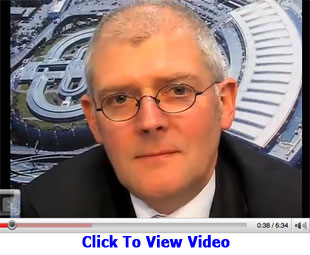 “In terms of importance, ten of
the thirty DAX companies are based right here at the heart of the North
Rhine-Westphalia, and some 400,000 companies operate in the Rhine-Ruhr
region.”
“In terms of importance, ten of
the thirty DAX companies are based right here at the heart of the North
Rhine-Westphalia, and some 400,000 companies operate in the Rhine-Ruhr
region.”
Air cargo has been steadily growing and
as mentioned at the gateway offers room to grow with potential throughput
of 300,000 tons annually.
It’s worth mentioning one of the
truly original ideas and businesses to come to the fore in the past
few years, leisure Cargo that serves the cargo needs of 18 carriers,
is based at DUS.
Gerton Hulsman (right )is managing director
of DUS Cargo Logistics, the major handling agent at the gateway that
operates, 24/7/365 as 100% subsidiary of the Düsseldorf International
Airport Group. DUS Cargo employs160 at the airport.
“We guarantee outstanding quality
combined with short handling times thanks to a top-grade location with
direct access to the apron and state-of-the-art equipment,” Hulsman
points out.
“As example, we have become an active
member of the “Cool Chain Association (CCA) since 2008.
“We support our customers to be
the best in providing world-class service and we will use and constantly
improve our know-how to remain best in practice.”
Geoffrey |



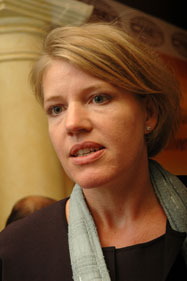 The
India express industry has made a strong plea to the Government to
facilitate better trade opportunities.
The
India express industry has made a strong plea to the Government to
facilitate better trade opportunities. 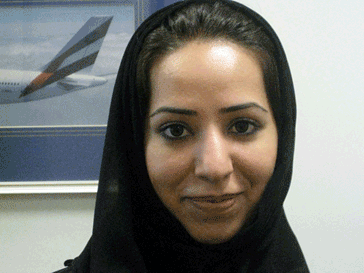


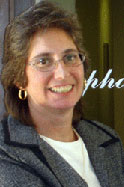
 Düsseldorf
brings much to the table as the third largest airport in Germany, although
as compared to FRA & MUC the gateway is rarely in the headlines.
Düsseldorf
brings much to the table as the third largest airport in Germany, although
as compared to FRA & MUC the gateway is rarely in the headlines.

 Air
Cargo News FlyingTypers leads the way again as the world’s first
air cargo publication to connect the industry to the broadly expanding
and interactive base for social commentary—Twitter.
Air
Cargo News FlyingTypers leads the way again as the world’s first
air cargo publication to connect the industry to the broadly expanding
and interactive base for social commentary—Twitter.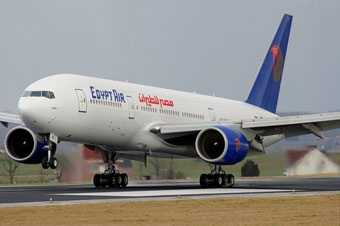 September
9: Happy Birthday and best wishes to Christian
Fink, MD Lufthansa Charter who celebrates 09/09/09. Going to play Lotto
in New York with that number!
September
9: Happy Birthday and best wishes to Christian
Fink, MD Lufthansa Charter who celebrates 09/09/09. Going to play Lotto
in New York with that number!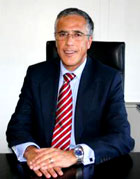 September
9: TAP Groundforce adds V4 software from
Hermes. “Allows Cargo 2000 requirements & quality and value,”
said Fernando Melo (left) , CEO of Groundforce.
September
9: TAP Groundforce adds V4 software from
Hermes. “Allows Cargo 2000 requirements & quality and value,”
said Fernando Melo (left) , CEO of Groundforce. Contact!
Talk To Geoffrey
Contact!
Talk To Geoffrey
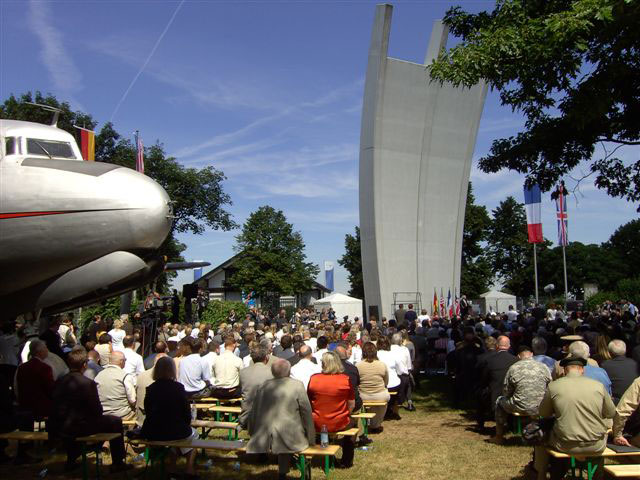 At
Fraport there is a spot just off the main runways where the U.S. Air
Force once utilized Rhein Main as a military base to support U.S.
activities in Europe, Africa and the Middle East as well as South
East Asia as a logistics hub for troops, dependents and all kinds
of airfreight.
At
Fraport there is a spot just off the main runways where the U.S. Air
Force once utilized Rhein Main as a military base to support U.S.
activities in Europe, Africa and the Middle East as well as South
East Asia as a logistics hub for troops, dependents and all kinds
of airfreight.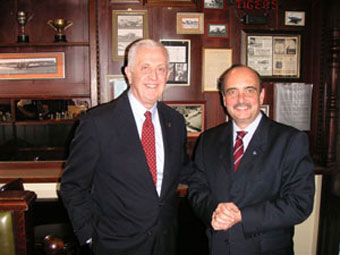
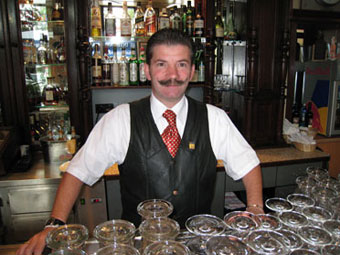 Mr.
Wüstefeld (right in picture left) is pictured with ACNFT
publisher Geoffrey Arend inside the hotel's neat little memorabilia-packed
vest pocket saloon called JU52. Harri (in picture left)
welcomes customers to JU52.
Mr.
Wüstefeld (right in picture left) is pictured with ACNFT
publisher Geoffrey Arend inside the hotel's neat little memorabilia-packed
vest pocket saloon called JU52. Harri (in picture left)
welcomes customers to JU52.